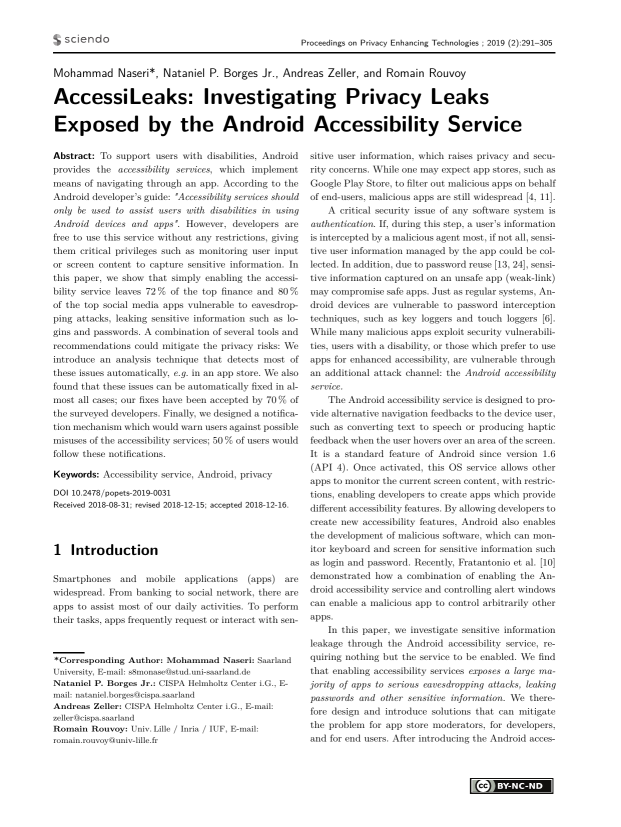AccessiLeaks: Investigating Privacy Leaks Exposed by the Android Accessibility Service
Authors: Mohammad Naseri (Saarland University), Nataniel P. Borges Jr. (CISPA Helmholtz Center i.G.), Andreas Zeller (CISPA Helmholtz Center i.G.), Romain Rouvoy (Univ. Lille / Inria / IUF)
Volume: 2019
Issue: 2
Pages: 291–305
DOI: https://doi.org/10.2478/popets-2019-0031
Abstract: To support users with disabilities, Android provides the accessibility services, which implement means of navigating through an app. According to the Android developer’s guide: "Accessibility services should only be used to assist users with disabilities in using Android devices and apps". However, developers are free to use this service without any restrictions, giving them critical privileges such as monitoring user input or screen content to capture sensitive information. In this paper, we show that simply enabling the accessibility service leaves 72 % of the top finance and 80 % of the top social media apps vulnerable to eavesdropping attacks, leaking sensitive information such as logins and passwords. A combination of several tools and recommendations could mitigate the privacy risks: We introduce an analysis technique that detects most of these issues automatically, e.g. in an app store. We also found that these issues can be automatically fixed in almost all cases; our fixes have been accepted by 70 % of the surveyed developers. Finally, we designed a notification mechanism which would warn users against possible misuses of the accessibility services; 50 % of users would follow these notifications.
Keywords: Accessibility service, Android, privacy
Copyright in PoPETs articles are held by their authors. This article is published under a Creative Commons Attribution-NonCommercial-NoDerivs 3.0 license.

